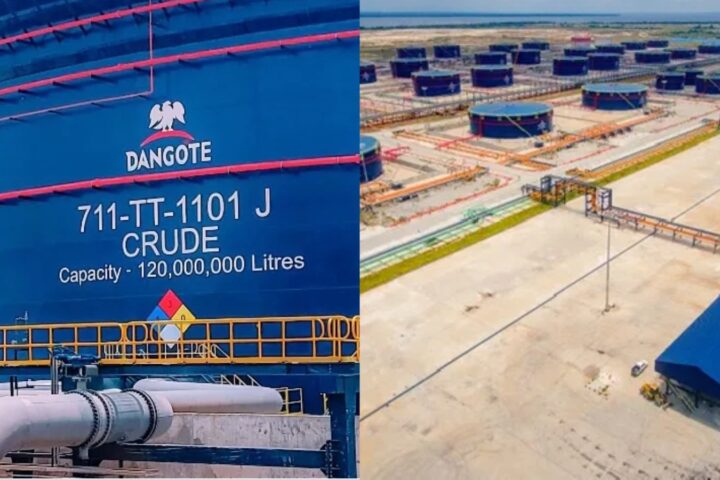In June 2023, the National Assembly finished work on a bill for the establishment of a Police Pension Board. If signed into law, the workers of the Nigeria Police Force (NPF) would have achieved a 17-year quest to be exempted from the Contributory Pension Scheme (CPS). The NPF workers would come under the federal government non-funded Defined Benefit Pension scheme (DBS), implying that their pension benefits would come through government budgetary allocation, which had been paying a far bigger lump sum on retirement than the CPS.
The NPF had been pursuing a quest to be removed from the CPS since 2011, when a bill to exit six paramilitary agencies of government was presented to the sixth National Assembly, which handled it up to a second reading when it was thrown out. A similar bill failed again in the National Assembly in 2016. The paramilitary agencies are the NPF, the Nigerian Security and Civil Defence Corps, Nigerian Customs Service, Nigerian Correctional Services, Nigerian Immigration Service and the Economic and Financial Crimes Commission. Presenting the bill in 2016, Hon. Oluwolu Oke argued that the identities, data, addresses and family ties of security personnel were endangered in civilian custody, adding that the nature of the services provided by the paramilitary outfits were unique and dangerous. Hon. Oke said the burden of paying police pensions should be shouldered by government.
Join our WhatsApp ChannelOther arguments pointed to delays in the payment of police pension entitlements. This last argument has been upheld by some critics, who insist that the reason for the CPS in 2004 was to clear the more than two trillion naira pension deficit that government could not deal with. Yet, the CPS has introduced its own choking delays in releasing pensions to retirees due to bureaucracies introduced by the PFAs and PenCom. The effect of inflation on the lump sum paid on retirement is considered very small in comparison with the needs facing retirees such as housing.
READ ALSO: Pension Assets Invested In Various Sectors Surpass N13 trn, Says PenCom
As compensation to the NPF, the federal government in 2013 allowed the police to have its own pension system, the Nigeria Police Force Pension Fund Limited (NPFPFL). The latter still operates under the regulations of the National Pension Commission (PenCom). The NPFPFL is also ranked among the most efficient of all the PFAs, perhaps second only to the IBTC Pensions. Clearly, however, the NPF was not satisfied, leading to more efforts to lobby the National Assembly, which has now passed the said bill to exit the NPF from the CPS. The action of the 10th National Assembly in passing the bill has thrown up a debate about law and consequences of the police exit from the CBS, beginning with the precedents leading to the present situations.
For instance, in 2019, President Muhammadu Buhari granted an approval to exempt certain civil servants, namely, the head of service of the federation, and permanent secretaries from the CPS. Following this, analysts warned that a dangerous precedent had been set. In 2004, then President Olusegun Obasanjo signed into law the Pension Reform Act, which allowed both employers and employees (of government) to make retirement savings in a pension scheme overseen by PenCom through approved pension fund administrators (PFAs). Originally, the federal government solely bore the full weight of pension in a ‘defined benefits scheme’ (DBS). Regrettably, but also expectedly, the FG failed retirees, who notoriously died in droves while pursuing retirement benefits.
The CPS changed all that, and the scheme has marched on, amidst predictable challenges such as corruption among the PFAs. The challenges led to the Pension Reform Act 2014, which made provision for a contributory pension scheme for employees of public and private sectors in Nigeria and related matters. Notably, the PRA 2004 had exempted the personnel of the armed forces, judicial officers, personnel of intelligence and security services, and employees who had three years or less to retire as at June 25, 2004.
Following the action of President Buhari, other bodies such as the police intensified their quest for the same preferential treatment, because they believed that being close to government, they would benefit maximally on retirement unlike the millions of ordinary retirees before the 2004 reforms. Even lecturers in tertiary institutions at some point tried to opt out of the CPS.
In March 2015, it took the interpretations of certain laws (e.g., Public Holders Act 2002, Section 173 of the Constitution, and Rule 020810 of the Public Service Rules 2008) by the Attorney General of the Federation, Mohammed Adoke, to stop the head of service of the federation and permanent secretaries from getting the approval of President Goodluck Jonathan to exit the CPS at the time. This led to the unveiling of a series of guidelines by the National Pension Commission (PenCom) in 2015. Part of the clarification offered by the Attorney General then was that the head of service and permanent secretaries, though appointed by government, were still subject to retirement at the appropriate time (60 years or 35 years of service), and would then still naturally be subject to pension contribution since they receive salaries as civil servants.
Surprisingly, in 2019, and in typical Nigerian style, it was the Attorney General, Abubakar Malami, who countered his predecessor to convince President Buhari to approve the exemption of the head of service and permanent secretaries from the CPS. Malami argued that the head of service and permanent secretaries were appointees of government, not employees. Yet, treating them as appointees requires that they be paid pension for life just as the ordinary civil servant, an identity they deny. This amounted to eating a double ration or, as one analyst described it: ‘they wanted to have their cake and eat it’. In fact the pensions were paid through the Integrated Payroll and Personnel Information System (IPPIS), which is used to pay salaries rather than pensions.
The action of President Buhari was therefore expressly worrisome because extant laws were clear on the issue of who should be included in the CPS. Section 318 of the Constitution includes public servants within the ambit of presidential appointees, just as Sections 2, 3, 4 and 6 of the Pension Reform Act (2004) brings all federal public officers or employees and appointees alike under the CPS.
On the fiscal and economic sides, signing the police bill into law would require government’s immediate release of two trillion naira to exit the NPF to a new scheme. The National Pension Commission (PenCom) and Pension Fund Operators Association of Nigeria (PenOp) have therefore argued against the bill. Former PenOp Chairman, Longe Eguarekhide, referred to the economic, fiscal, social and public policy problems in terms of the additional financial burden on the federal government, which will erode the pool of long term investible funds accumulated under the CPS.
The FG will also need to spend at least two billion naira annually on police pensions alone. The 2023 budget Appropriation Act allotted the sum of 2.170 billion naira as total pension and gratuities allocation. Yet this was said to be insufficient to fund the pension liabilities of the federal government. In fact, unconfirmed reports as of 2019 alleged that some retired senior police officers had been enrolled in IPPIS and NPFPFL to collect retirement benefits from both sources. It was also alleged that the police see PenCom as a huge repository of funds, from which they can benefit without the hassles of PenCom regulations tied to their salaries. Regrettably, police salaries are generally lower than those of other security agencies like the army, which do far riskier and more tasking jobs.
As a result, instead of creating a legal conundrum by signing the bill, the federal government can seek other avenues to quell the dissatisfactions of the police about the CPS. The NPF Pensions Limited is already taking bold steps to address the gaps by allocating N500 million from its profit to address issues of welfare. Definitely, there are reasons for the call on PenCom to pay a closer attention to the agitations of civil servants against the CPS. Going back to the pre-2004 Defined Benefit System is not the right option. Some analysts have therefore called on the PenCom to review the PRA 2014 to increase the percentage of the lump sum paid upon retirement. This will forestall the allegations levelled against the police in recent times about threatening journalists and anyone (e.g. Arise TV’s Oseni Ruffai) who is seen to be working against President Bola Tinubu’s assent to the bill as it affects police pensions.
Dr Mbamalu is a veteran journalist, Editor and publisher
Follow him on X: @marcelmbamalu

















Follow Us